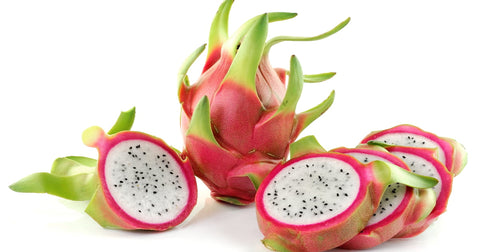Kombucha, the fizzy, fermented tea drink, has gained immense popularity for its refreshing taste and potential health benefits. But for those seeking a caffeine-free beverage or watching their caffeine intake, a common question arises: "Does kombucha have caffeine?"

This comprehensive guide will explore the caffeine content in kombucha, delve into its digestive benefits, and offer insights into how food intolerances might be impacting your gut health.
Understanding Kombucha
Kombucha is made by fermenting sweetened tea with a SCOBY, a colony of bacteria and yeast. This fermentation process produces probiotics, organic acids, and a small amount of alcohol.
Does Kombucha Have Caffeine?
Yes, kombucha typically contains caffeine because it's made with tea, which naturally contains caffeine. However, the amount of caffeine in kombucha is usually lower than in a traditional cup of tea or coffee.
How Much Caffeine in Kombucha?
The caffeine content in kombucha can vary depending on several factors:

-
Type of Tea: The type of tea used to make the kombucha (black, green, or white) influences the caffeine levels. Black tea generally has the highest caffeine content, followed by green tea, and then white tea.
-
Brewing Time: Longer steeping time extracts more caffeine from the tea leaves.
-
Fermentation Process: The fermentation process can sometimes reduce caffeine content, but this varies depending on the specific kombucha brewing method.
On average, an 8-ounce serving of kombucha contains around 10-25 milligrams of caffeine.
How Much Caffeine is in Kombucha Compared to Other Beverages?
Kombucha generally has less caffeine than coffee or traditional black tea. Here's a rough comparison:
-
Coffee: 80-100 mg per 8 ounces
-
Black Tea: 40-80 mg per 8 ounces
-
Green Tea: 25-45 mg per 8 ounces
-
Kombucha: 10-25 mg per 8 ounces
Benefits of Kombucha for Digestion
Kombucha offers several potential benefits for digestion and gut health:
-
Probiotics: Kombucha contains live and active cultures of beneficial bacteria that can help support a healthy gut microbiome.
-
Organic Acids: These acids, produced during fermentation, can aid in digestion and nutrient absorption.
-
Enzymes: Kombucha also contains enzymes that can help break down food and improve digestion.
Food Intolerance and Digestive Health

If you experience digestive issues despite consuming kombucha or other healthy foods, consider the possibility of food intolerances or sensitivities. These can trigger inflammation and disrupt your gut health.
A food sensitivity test kit can help you identify specific foods that might be contributing to your symptoms. By eliminating or reducing these trigger foods, you can potentially improve your digestion and overall well-being.
Key Takeaways:
-
Kombucha typically contains caffeine, but the amount is generally lower than in coffee or black tea.
-
The caffeine content can vary depending on the type of tea used and the brewing process.
-
Kombucha offers various digestive benefits due to its probiotics, organic acids, and enzymes.
-
If you experience digestive issues, consider a food sensitivity test to identify potential food triggers.
Remember, this article is intended for informational purposes only and should not be considered a substitute for professional medical advice. If you have any concerns about your health or kombucha consumption, consult a qualified healthcare professional.
Frequently Asked Questions:
1. Can I drink kombucha at night?
While kombucha has less caffeine than coffee, it's best to avoid it close to bedtime, especially if you're sensitive to caffeine. Even small amounts of caffeine can interfere with sleep for some individuals.
2. I'm pregnant. Is it safe to drink kombucha?
Due to its caffeine and trace alcohol content, it's best to consult your doctor before consuming kombucha during pregnancy. They can advise you on safe consumption limits based on your individual needs and health conditions.
3. Does pasteurized kombucha have the same benefits as unpasteurized?
Pasteurization kills the live probiotics in kombucha, which are responsible for many of its gut health benefits. If you're seeking digestive support, choose raw, unpasteurized kombucha.
4. How much kombucha should I drink per day?
Start with a small amount (4-8 ounces) and gradually increase your intake as your body adjusts. Most people consume around 1 cup (8 ounces) per day, but it's important to listen to your body and adjust accordingly.
5. I'm experiencing bloating and gas after drinking kombucha. Could it be a food intolerance?
While kombucha can sometimes cause gas or bloating, especially when first introducing it to your diet, it's also possible that you have a food intolerance to one of its ingredients. Consider a food sensitivity test to identify potential triggers and make informed dietary choices.


.png?v=1737390083)
.png?v=1737187409)


